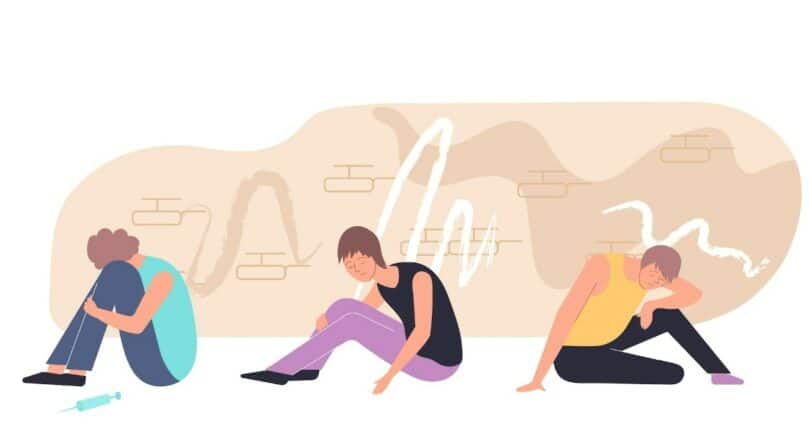Addiction is a multifaceted disease that impacts countless lives. Addiction is characterized by persistent substance or behavior usage despite adverse effects. Among the many methods available for overcoming substance abuse, exercise stands out as a proven resource for maintaining sobriety and advancing the recovery process.
Fatigue in Addiction Recovery
Addicts in recovery frequently report feeling fatigued. Disrupted sleep patterns, poor diet, and both physical and emotional stress have all been linked to its development. Substance withdrawal symptoms can include fatigue, which can hinder a person’s ability to carry out daily tasks.
Combating fatigue, improving physical and mental health, and fostering social ties and support are all aided by regular exercise, making it an invaluable tool for those recovering from addiction.
The Role of Exercise in Combating Fatigue
It has been found that regular exercise can help those in recovery from addiction feel less tired and have more energy. Exercising regularly has been demonstrated to increase both the quality and duration of sleep, leading to greater alertness and productivity during the day. Endorphins are the body’s natural feel-good chemicals and have been shown to rise during exercise while stressing hormones like cortisol decrease. Because stress levels tend to be highest towards the beginning of the healing process, this can help people feel calmer and at ease.
Enhancing Physical Fitness and Stamina
Individuals in recovery can benefit from exercise in a number of ways, including but not limited to better sleep, reduced stress, and enhanced physical health. Substance abuse can have far-reaching consequences for health, including diminished immunity and an elevated danger of developing chronic conditions like diabetes and cardiovascular disease. The immune system, the risk of chronic disease, and general physical health can all benefit from regular exercise.
Improving Mental Health
The mental benefits of exercise are often overlooked. Substance abuse frequently occurs alongside mental health issues including despair and anxiety. Exercising regularly has been demonstrated to help alleviate the signs of many diseases and boost mental and physical health. This can be especially helpful for those battling the emotional difficulties of addiction recovery .
Building Social Connections and Support
Last but not least, exercise is a potent means of fostering social bonds and mutual support. Recovering addicts often experience emotions of loneliness and alienation. Participating in a fitness class or team sport can be a great way to meet new people and get some exercise at the same time. This can aid people in recovery by making connections with others who share their goals of leading addiction-free, healthy habits and lifestyles.
Types of Exercise for Addiction Recovery
There is a wide variety of exercises from which to select. Others may favor strength training activities like weight lifting or resistance band workouts to cardiovascular activities like running, cycling, or swimming. Stress reduction and general well-being can be enhanced by the practice of yoga, Pilates, or another mind-body exercise. The most important thing is to select an exercise that you can maintain with your current routine.
Tips for Incorporating Exercise into Your Recovery Plan
There are a few things to bear in mind if you want to include exercise as part of your plan to overcome addiction. As a first step, you should see your doctor before beginning any new form of exercise. Based on your present health and any medications you may be taking, they can advise you on the sorts of exercises that are safe and appropriate for you.
After getting the all-clear from your doctor, you should ease into an exercise plan and work your way up to your maximum capacity. Injuries and burnout can both be avoided with this measure. Setting achievable targets for oneself and rewarding small wins along the road is also crucial.
Additional suggestions for using exercise in your recuperation program include:
Integrate exercise into your everyday schedule: Make time for exercise just like you would for any other commitment. Making exercise a regular part of your routine is one way to guarantee that you get adequate exercise each day.
Get in shape with a pal: Having a training partner may be a great source of accountability, inspiration, and encouragement.
Toss in some variety: Don’t be scared to switch things up and try new forms of exercise. This can keep you from getting bored and help keep you going.
Honor your bodily wisdom: It’s important to tune into how your body responds to exercise. Feeling exhausted or sore is a warning indication that it’s time to slow down or take a break.
Conquering Barriers to Exercise during Recuperation
While regular exercise has been shown to aid in the process of overcoming substance abuse, getting started can be challenging. Lack of time, lack of access to equipment or facilities, or physical restrictions are just a few of the many factors that might make it challenging to exercise regularly.
One strategy for getting through these roadblocks is to take baby steps and work up from there. Daily exercise, even if only for a few minutes, has been shown to improve both physical and mental health. Take the stairs instead of the lift, or perform some stretches during your lunch break to include a little exercise in your day.
Many exercises, like bodyweight exercises or outdoor activities like walking or hiking, may be done with little to no equipment, which is helpful if you don’t have access to gym equipment or facilities. To help people get started, several areas provide access to fitness programs at no or reduced cost.
The Final Words
When it comes to overcoming addiction, exercise may be a powerful weapon, aiding in the fight against exhaustion, the enhancement of physical and mental health, and the cultivation of social networks and support. Individuals in recovery from addiction can boost their health and their chances of maintaining soberness by engaging in regular exercise.
Addicts on the road to recovery can boost their health and their chances of maintaining abstinence by making exercise a regular part of their routine and learning to cope with the challenges they face along the way. Keep in mind that getting better is a marathon, not a sprint, and that exercise may be a great asset on the road to recovery.









